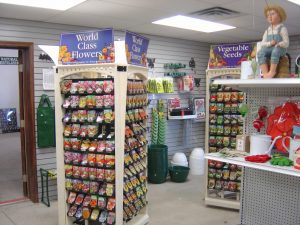
Seed packets are an essential part of gardening and can be used for multiple seasons.
Your seed packets from over the past few seasons may or may not be worth using this season, depending on where you stored them, and the type of seeds they contain.
Seeds are alive, but they don’t live forever. When you buy a packet of seeds, government standards assure you that a minimum percentage of them are alive. You can find the packing date stamped on the packet.
Vegetable Seeds
The best storage: Low temperature and low humidity slow biological and chemical reactions and slow the seeds’ aging. Try sealed canning jars in your freezer.
Sow it or throw it: Seeds differ in how long they remain viable. It’s not worth sowing celery, parsley, or parsnip seeds after they are over a year old. On the other hand, two years can be expected from packets of carrot, onion, and sweet-corn seed. Three years from peas and beans, radishes, and beets. And four or five years from cabbage, broccoli, Brussels sprouts, cucumbers, melons, and lettuce.
Flower Seeds
The shortest-lived are delphinium, aster, candytuft, and phlox. Packets of alyssum, Shasta daisy, calendula, sweet peas, poppies, and marigolds can be reused for five or 10 years.
Give them a test: A yearly germination test is a good way to check whether an old seed packet is worth saving. Each spring, count out 15-20 seeds from each packet to be tested. Spread the seeds between two moist paper towels on a plate. Invert another plate over the first plate to hold in moisture and keep them in a 75-degree place.
After a couple of weeks, peel apart the paper towels and count the number of germinated seeds If very few germinated, head to your garden center for some new seed packets.
Knowing what type of seeds your seed packets contain can help you determine if they are still worth using this season or not. Different types of seeds have different shelf lives and it’s important to understand these differences before planting them in your garden.
Dill’s Greenhouse carries a great selection of heirloom, organic, and hybridized seeds. Don’t waste your time with old seeds. Stop by and ask our knowledgeable staff all of your questions.






